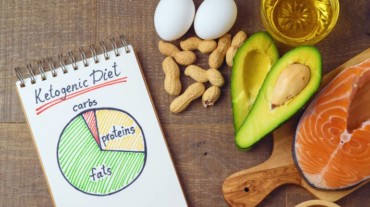
If weight loss is on your mind, then chances are you have been considering either the keto diet or intermittent fasting to shed those extra kilos. After all, not only are these diets trendy—they also come with success stories that are hard to ignore.
But here’s the thing: while the keto diet and intermittent fasting might give you amazing results in the short term, if the latest research is to be believed—then it can also impact your heart health in the long-term.
Says Dr Andrew Freeman, director of cardiovascular prevention and wellness at National Jewish Health, an academic hospital in the US, and co-author of the study: “With diets like keto and intermittent fasting, social and popular media has been flooded with claims, promises and warnings that are at best unverified and at worst harmful to your health.”

“Diets recommended by health experts, such as plant-based and Mediterranean diets, have been extensively studied for safety and efficacy, and demonstrated conclusively to improve cardiovascular health,” he added.
Researchers suggest that keto might be especially bad for the heart
Keto is a very low-carbohydrate diet that is aimed at sending the body into a state of ketosis, where it has reduced access to glucose and is instead mostly fuelled by fat. While the limited study of the keto diet shows that those who follow it initially lose weight, it tends not to be sustainable according to 12-month data. It is also unclear whether the weight loss is caused by ketosis or simply by calorie restriction.
Researchers also have concerns about the type and amount of fat consumed by those following a keto diet. While existing studies strictly controlled the type of fat and foods participants consumed, many who try keto consume high amounts of unhealthy saturated fat—which is associated with an increased risk of heart disease and high lipid levels in the blood.
Also read: You can’t afford to ignore these 4 health risks of the keto diet
Evidence also suggests that eating a keto diet for an extended period of time may lead to the stiffening of arteries, and several studies found that those who eat a keto diet have a greater risk of death.
Intermittent fasting might just be a double-edged sword
While researchers are optimistic about the potential health benefits of intermittent fasting, there are plenty of pitfalls to be worried about. The most prominent one being people going without food an entire day and others restricting meals to certain hours of the day.
Experts also worry that the hunger-induced by fasting causes many people to overeat when it is time for meals, or make unhealthy choices that have adverse effects on their cardiovascular health.
Select Topics of your interest and let us customize your feed.
PERSONALISE NOW
A majority of the current evidence regarding the potential benefits of intermittent fasting come from animal studies, which have shown increased longevity, weight loss, decreased blood pressure, improved glucose tolerance and controlled lipid levels.
“The potential risks of intermittent fasting that require further study include effects of starvation and how it may impact organ function,” Dr Freeman said. “It is particularly important for diabetics to speak with their doctor before trying intermittent fasting to discuss how to control their disease and the risk of hypoglycemia that may come with skipping regular meals.”
So what must you do for weight loss?
Well, for starters instead of going on a weight-loss diet per se—you can start by eating small and frequent meals throughout the course of the day. Include plenty of fibre and protein in your diet—both of which can help you feel fuller for longer, thus reducing your cravings and binge sessions. Keep yourself hydrated to keep away the bloating and eat whole foods and fruits—as much as possible. Follow these basics of healthy eating—and you won’t need keto or intermittent fasting ever again.
(With inputs from ANI)